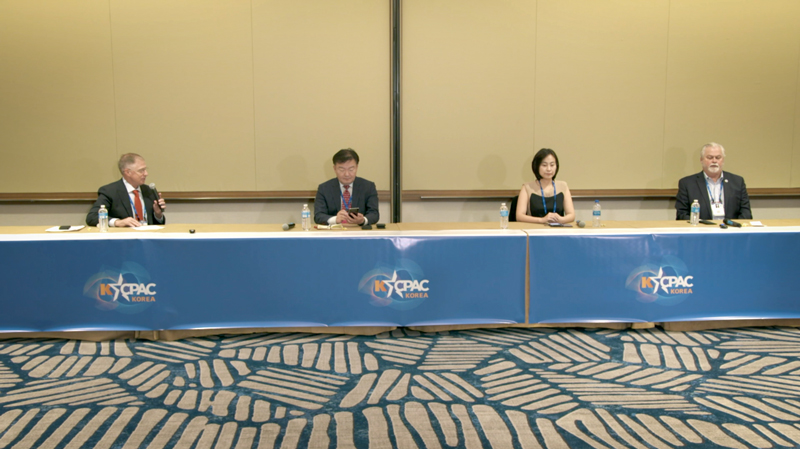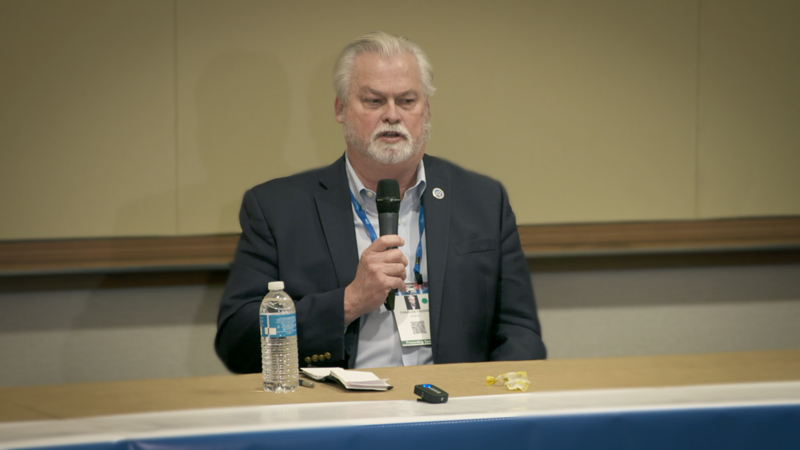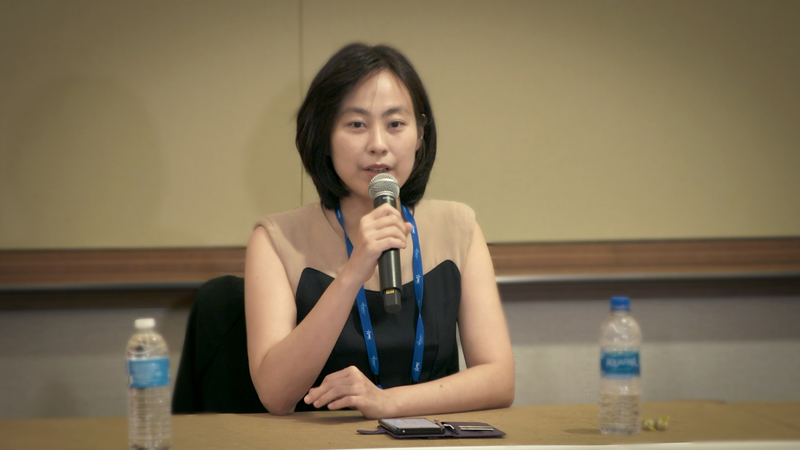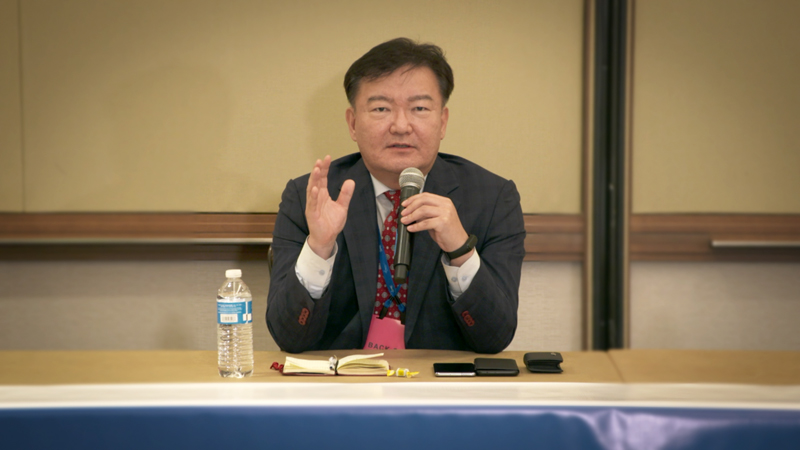CPAC/KCPAC 2021 Breakout Session
“Irregularities in the 2020 Elections in South Korea and the United States:
Lessons Learned and Warnings for the Future”
Panelists:
Mr. Min Kyung Wook, former South Korean National Assemblymen who is spearheading the effort to expose electoral fraud in South Korea
Ms. Moon Soo Jung, South Korean lawyer who helped prepare the election lawsuit filed by former National Assemblyman Min
Charles “Sam” Faddis, former CIA officer and expert in electoral fraud in America’s November 3, 2020 election
Grant Newsham (moderator), author of Fraud in the South Korea April 15, 2020 election: It probably did happen, and is a big deal for the United States
Center for Security Policy, Asia security analyst
President of KCPAC
This panel discussion focused on the irregularities which occurred in the 2020 elections in South Korea and the U.S.
Mr. Min noted with reference to the election in his district in Korea that a well-known statistician has said that the results were comparable to tossing a thousand coins into the air and having them all land in the same place, and that a famous scholar has said that the results were either a miracle or due to fraud.
Mr. Min also noted that in three of the areas of Korea comparable to American “swing states,” the candidates of the ruling leftist party received the same percentage of votes in early voting. He said that there was evidence of mail-in ballots cast in the election which were in mint condition without the typical creases, and that in one district, each voter was found to have cast a vote precisely every 4.1 seconds.
Ms. Moon explained that her interest in and research into the election irregularities in Korea was motivated by the fact that while there were widespread expectations of a ruling party defeat due to its very unpopular policies, the result was paradoxically a large ruling party victory, which seemed quite suspicious to her.
Ms. Moon added that she had found evidence of the mishandling and improper, non-secure storage of cast ballots, evidence that the seals on ballot storage boxes had been tampered with, problems with ballot counting machines, and a lack of uniformity in ballot size and shape.
Mr. Faddis stated that he began to investigate the U.S. election results due to his view that the outcome was rather strange, and based on his concern over the mass use of mail-in ballots in an unprecedented manner, as well as the discarding of procedural safeguards in many states, which had previously been enforced to prevent fraud.
Mr. Faddis cited as examples, a very large discrepancy between the total number of votes cast in Pennsylvania on a state level, and the lists of voters on a county level, as well as a larger number of mailed-in ballots than were recorded as being processed by the postal service. He added that a proposal to scrutinize ballots without the usual creases was not acted upon.
Ms. Moon pointed out that the efforts of herself and other lawyers to investigate election irregularities were harassed by the National Election Commission, and that in some cases lawyers and others who had collected crucial evidence of election irregularities were threatened and even charged with crimes and jailed. Mr. Min added to these observations that there were significant similarities between the irregularities which occured in the U.S. and Korea, which included planning by leftists, the manipulation of vote counting machines, interference by China, and the rigging of mail-in and early voting. He stated that like in the U.S., those looking into such issues in Korea relied on tips from whistleblowers. He also said that he was particularly concerned that via Wifi, vote counting machines were capable of communicating with outside sources, and that the government agencies which should have investigated such matters were pressured not to do so. This lack of effort and cooperation by government investigative agencies, he said, greatly hampered the discovery of further evidence of election irregularities.
Mr Faddis explained that dead people and individuals who ere 180 years old had apparently voted in Pennsylvania, which was the result of a large-scale switch from traditional in-person voting to an untried system of mass mail-in voting, and that these types of problems had been anticipated in studies. He added that the U.S. has advised other nations not to use mail-in voting due to the potential for fraud. Those investigating such irregularities were seriously handicapped, he said, by a lack of access to government information that could prove their contentions, which resulted in a burden of proof almost impossible to overcome. He expressed pessimism that state legislators in Pennsylvania, for example, would ever repeal the move to mass mail-in voting, and that the problem would therefore not be remedied in future elections.
Ms. Moon, in responding to Mr. Newsham’s question regarding the need for and extent of transparency in Korea’s election, replied that under an absurd National Election Commission interpretation of Korean law regarding vote counting officials, some Chinese nationals were allowed to count votes. The National Election Commission even laughably claimed that such Chinese nationals would be more neutral and unbiased in such work than Korean citizens. Ms. Moon added that when leftist reporters had claimed that a previous Korean president, the conservative Park, Geun-hye, had been elected in 2012 based on fraud, the National Election Commission seemed eager to conduct a full investigation of the accusations, but that they now have refused to provide adequate assistance to those trying to investigate irregularities in the 2020 Korean election. Ms. Moon concluded that the stubborn refusal of the National Election Commission to sufficiently support any investigations into irregularities is itself evidence that the election was rigged. She further stated that evidence of election irregularities in the U.S. was also being ignored by the leftist American media. Citizens living in a free democracy, she said, had a right and an obligation to conduct such investigations and raise such issues regarding election irregularities.
Mr. Newsham, noting that he has had the opportunity to study the Korean election in detail, stated that he was at first skeptical of claims of election fraud in Korea. However, once he began to assess the evidence, and also the strong credibility and diversity of those providing the evidence, he was impressed by the substantial evidence collected in the face of opposition from the government and its election officials, and he came to believe that there was indeed compelling evidence of substantial irregularities in the Korean election. He said that this evidence deserved more attention from Korean and Western media and foreign organizations which monitor elections. The similarities in the irregularities experienced in both the U.S. and Korean elections, he pointed out, were striking. He said that these included problems related to early voting, mail-in voting, votes showing up just in time to tip close races, statistical oddities,
suspicions as to electoral hardware, the lack of investigation into such issues, the obstruction of poll observers, ballot chain of custody and handling problems, more votes cast than registered voters in some districts, and allegations of Chinese interference. He also noted in both countries there were responses of dismissiveness and, harsh attacks on those raising the issues, some unresponsiveness from the judiciary, and a clear lack of media interest in the allegations. He concluded that all of these points were related to the basic issue of a lack of public confidence.
Mr. Newsham’s final inquiry to the panelists was in regard to how public confidence could be restored in the electoral system.
Mr. Min stated that democracy could not stand strong if these election problems were not remedied. He lamented that those raising issues about election irregularities are being attacked as conspiracy theorists promoting “fake news”. He cited a Bible verse to make the point that although individuals may be silenced, the statistics and ballots continue to “speak for themselves,” in a sense, as evidence of the rigging of Korea’s election.
Ms. Moon noted that in order to restore confidence in the electoral process, the public must be more directly involved in observing it. To this end, she and others are working to mobilize election observation forces. The root of the problem in Korea, she observed, is that an official of the president’s campaign became a senior official of the National Election Commission. She pointed out the further problem that conservatives tend to be passive, whereas leftists tend to be more aggressive. She concluded that conservatives will have to be much more active in order to ensure free and fair elections.
Mr. Faddis observed that the solution is straightforward, and consists of a return to in-person voting, with voter ID, and getting rid of the machines in the electoral process, which will ensure that votes are valid and avoid the manipulation of results.
On a final note, Mr. Min expressed his sincere appreciation for the important role that CPAC and KCPAC, and Mr. Grant Newsham and Ms. Annie Chan of KCPAC in particular, have played in bringing these issues to the attention of the American public.







